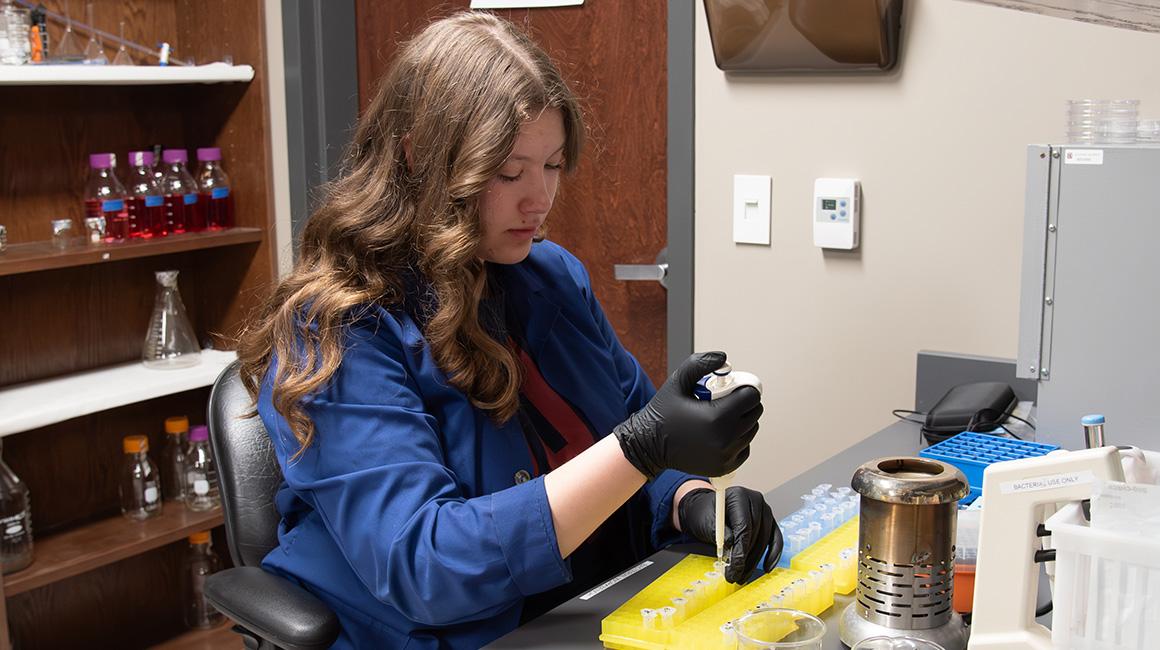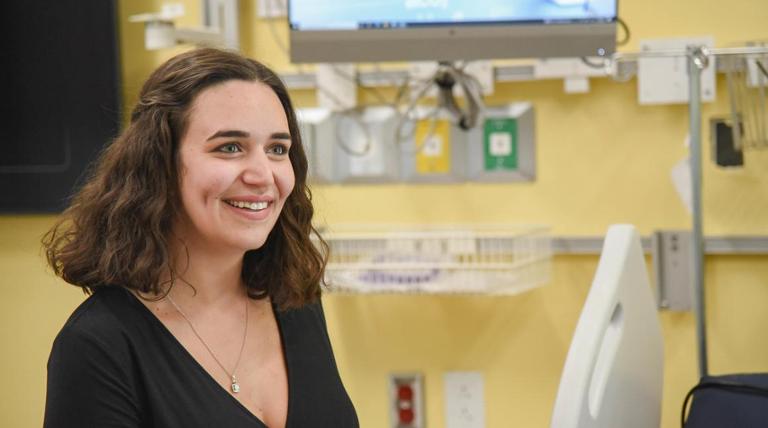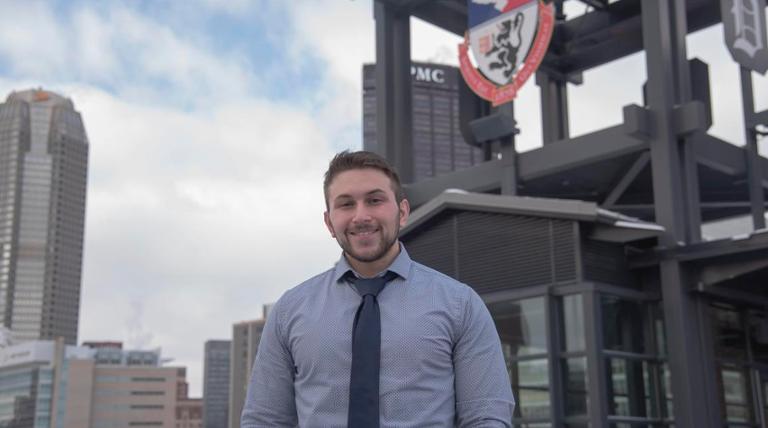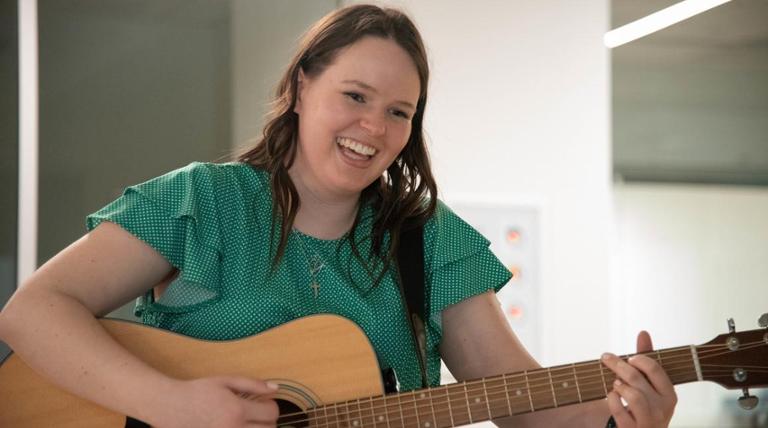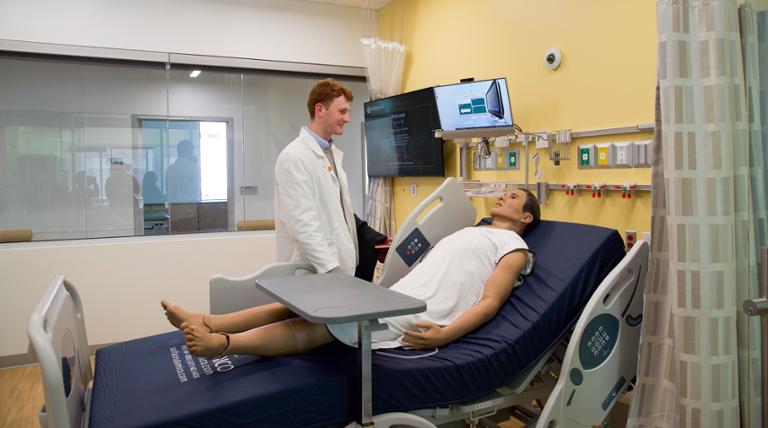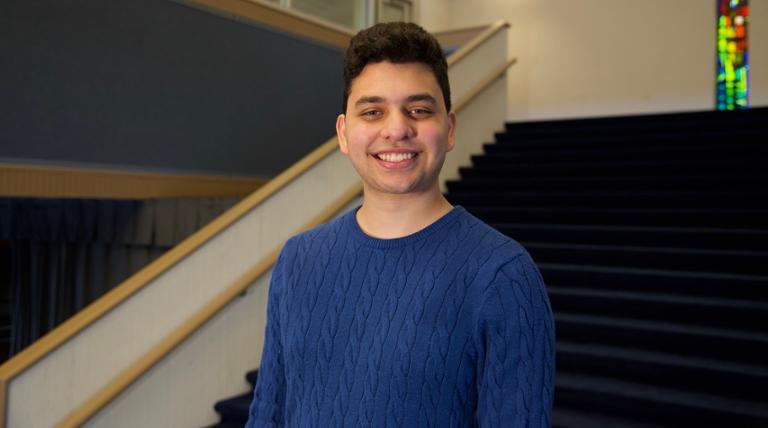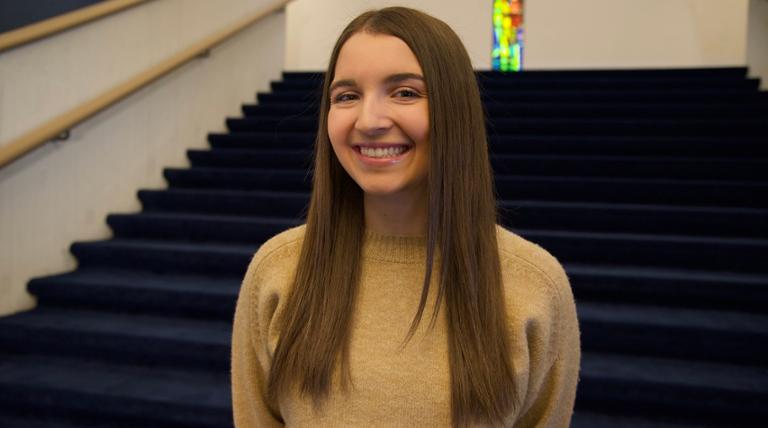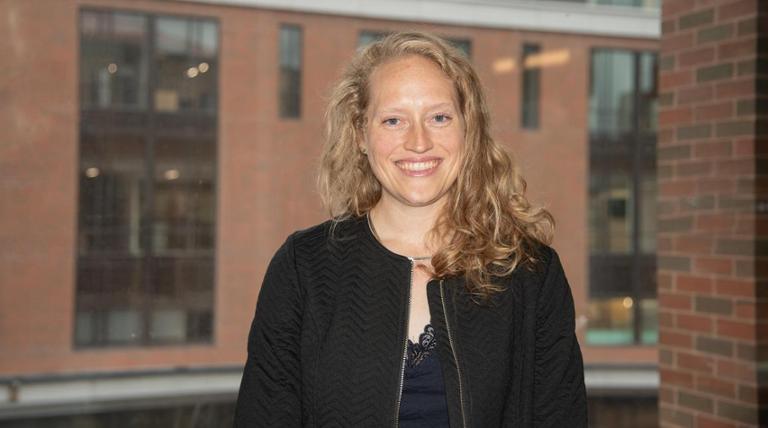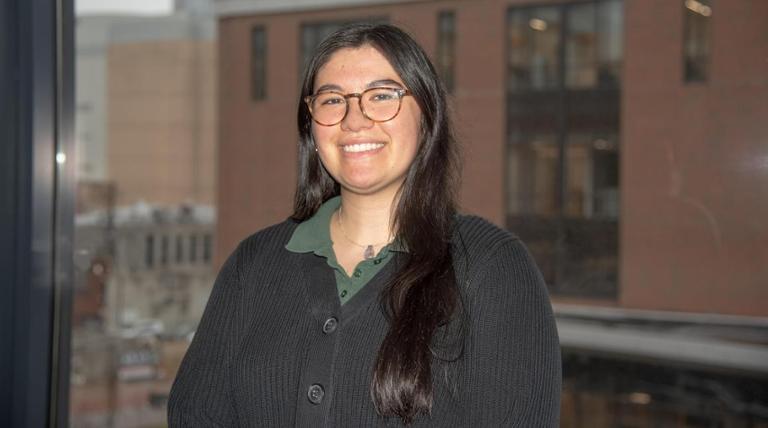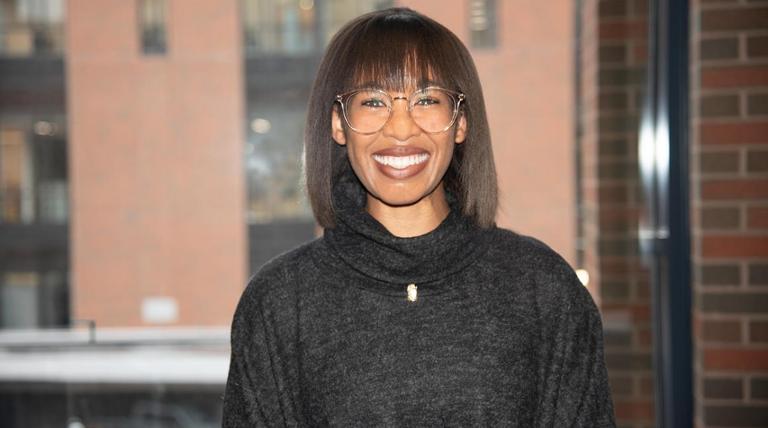Kyla Covato was in preschool the first time someone asked her what she wanted to be when she grew up. Her answer? “Everything.”
She held strong to that statement throughout high school by taking multiple Advanced
Placement classes and participating in sports, organizations and clubs ranging from
soccer to band.
Recognizing her academic strengths of science and math, Kyla researched careers where
she could use her talents to make a difference in the world. She found the field of
biomedical engineering and immediately knew it would be a great fit.
Kyla wanted to attend a mid-size university where research opportunities were available
and she could receive mentorship from faculty. Her college search led her to Duquesne.
“Biomedical engineering at Duquesne looked like a great program,” she says. “Funny
enough, I never even toured campus. Once I was accepted and arrived, the campus was
gorgeous and I felt like this was my home.”
Kyla enjoys studying thermodynamics – a branch of physics that deals with the energy
and work of a system. She also focused on her other academic strengths by pursuing
a second major in applied mathematics.
While Kyla excels in the classroom – and helps others succeed through her work as
a thermodynamics tutor – she embraces the research opportunities available at the
School of Science and Engineering.
Her current work focuses on biomedical photoacoustics, which is the detection of particles
and cells using light and sound. In layman’s terms, Kyla describes the work as “speeding
up the detection of any type of cell.”
This could allow sick patients to receive blood test results faster, and it could
lead to earlier detection of diseases like cancer.
“When the detection system hits a particle or cell, it expands, makes a sound and
sends out waves,” she explains. “This semester we’re taking it to the next level by
getting whole blood samples and infusing them with bacteria and cancer cells.”
Just as Kyla trusted in Duquesne, her faculty mentor trusts in her abilities and is
eager to champion her aspirations so she can realize her boldest goals. “Dr. John
Viator is a great mentor,” she says. “He answers all my questions and has given us
freedom to discover.”
Experience in the lab and in the classroom helps Kyla gain the skills she’ll need
to become a problem-solver who is driven by a desire to help others. She’s learning
the diverse, hands-on skills needed to make a difference in medical device development
and in the lives of patients.
“In our electronics classes we learn a lot about circuits and soldering,” she says.
“I even learned to code through my programming course.”
Kyla looks forward to making discoveries alongside incoming College of Osteopathic
Medicine students to make an even bigger impact in her future profession and on the
people it serves.
“Biomedical engineering students are behind the scenes creating medical devices and
detection methods,” she says. “With the medical students we can look at issues they
might have and help them discover what we can do about them. I'm excited to collaborate
and solve more health issues.”
With this research experience under her belt, Kyla reflects on her first successes
in the lab, noting her wonder when the melanoma cells she cultured survived incubation
overnight and were visible under her microscope.
“I look back to 17-year-old me, who would be shocked at what I’m doing now,” said
Kyla. “That’s all thanks to Duquesne and this program.”
News Information
New Medical School, Fresh Perspectives
Students from across campus will connect in meaningful, productive ways.


